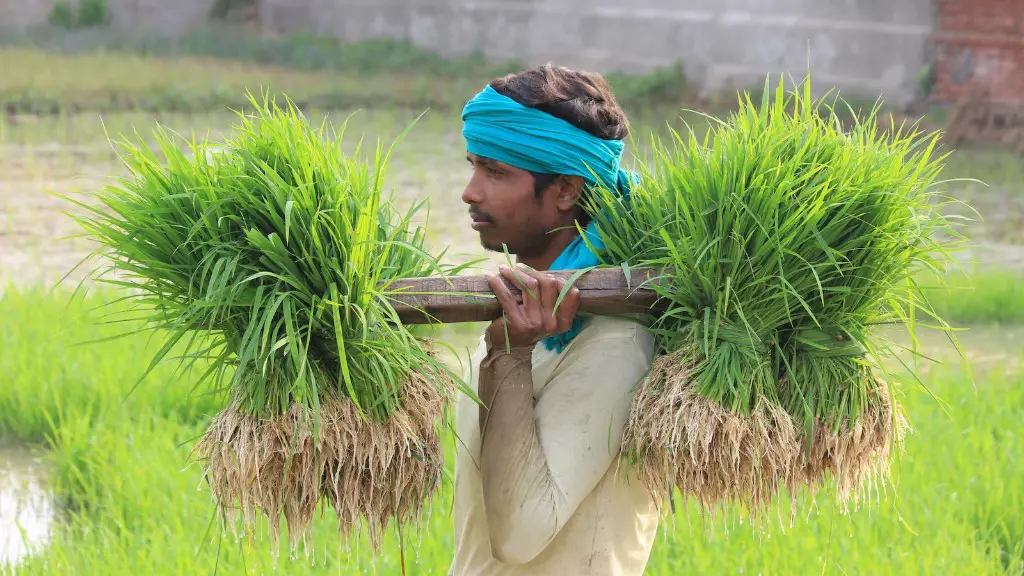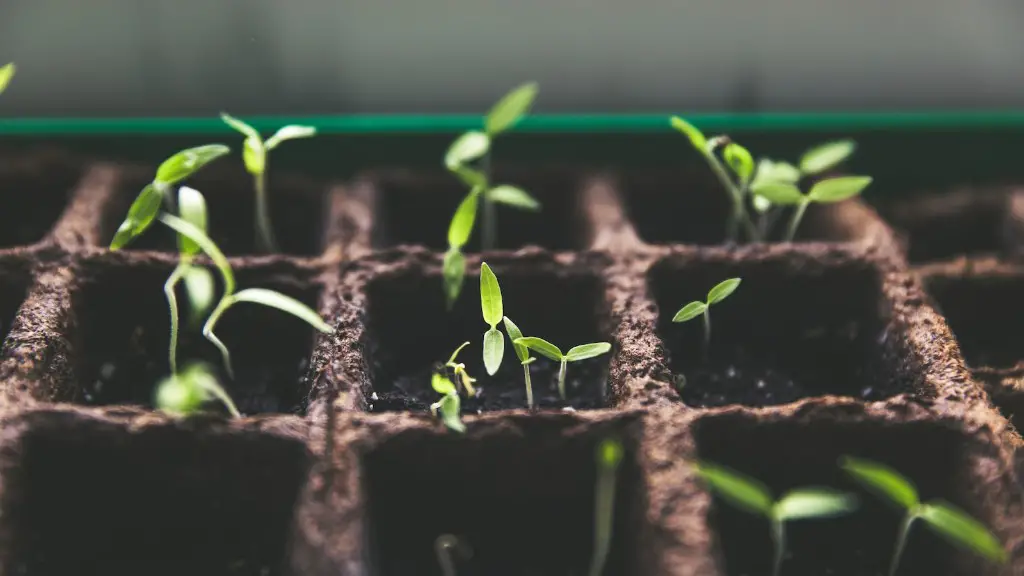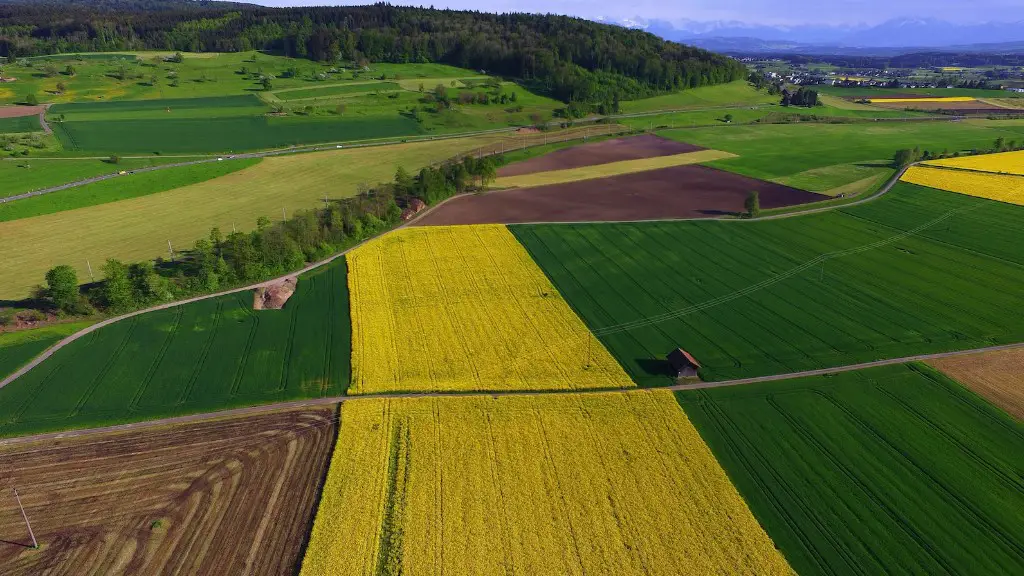In recent years, attention has increasingly been paid to the role of urban agriculture in food security. Urban agriculture is defined as the cultivation, processing, and distribution of food in and around urban areas. It includes a wide range of activities, from small-scale home gardens to large-scale commercial operations. There is growing evidence that urban agriculture can play a significant role in improving food security. A number of studies have found that households engaged in urban agriculture are more food secure than those that are not. Urban agriculture can also help to reduce the cost of food and improve access to fresh, nutritious food. In addition, by producing food locally, urban agriculture can help to reduce the carbon footprint of the food system.
There is no one-size-fits-all answer to this question, as the impact of urban agriculture on food security depends on a number of factors, including the local climate, soil conditions, availability of water, and the socio-economic context of the community in which it is practiced. That said, in general, urban agriculture can contribute to improved food security by increasing the availability of fresh, nutritious food, boosting incomes for farmers, and creating employment opportunities.
How urban agriculture can improve food security in US cities?
Urban agriculture can play a role in improving local food security and nutrition, especially for underserved communities. By raising fresh fruits, vegetables and some animal products near consumers in urban areas, we can help to ensure that everyone has access to healthy, affordable food. Additionally, urban agriculture can help to create jobs and economic opportunities in cities, which can further help to improve the overall health and wellbeing of residents.
There are many benefits to urban agriculture, including improving food security, environmental benefits, health benefits, and social benefits. Many organizations see urban agriculture as a way to improve food security and offer other benefits as well.
Does agriculture increase food security
Agriculture is of fundamental importance to developing countries, because a well functioning agricultural sector is essential to ensuring food security, and agricultural products are a major source of national income. Agricultural development is essential to poverty reduction and economic growth in developing countries. In order to achieve these goals, it is necessary to invest in the agricultural sector, including in research and development, infrastructure, and human capital.
Urban agriculture has been around for centuries, and it is a vital part of many cultures. It promotes local and sustainable food systems, and it is good for the environment, the ecosystem, and the climate. Urban farming brings communities together and it improves the health of citizens.
How does urban agriculture affect food security?
Urban agriculture (UA) is a strategy to improve food availability, food access and also to support food security. UA may provide a source of food or income for household. It can also help to create green space and improve the quality of the environment in cities.
Urban farming can help reduce poverty in a number of important ways. It improves local economies by stimulating commerce and creating jobs. It also helps the environment by providing healthy, affordable food to local communities.
What are the benefits of urban agriculture food security?
Urban agriculture is a great way to reduce the cost of living and ensure a steady supply of food. By growing your own food, you can save money on groceries and donate surplus food to food banks. This is a great way to help families with low incomes and ensure that everyone has access to fresh, healthy food.
Urban agriculture can have a number of benefits for the people and communities that surround it. By reducing transportation costs and helping to reduce runoff associated with heavy rainfall, urban farming can make a positive impact on the environment. Additionally, urban agriculture can lead to better air quality and provide fresh, healthy food for the community.
What are 3 benefits of urban farming
Urban agriculture can have many benefits, including prevention of the heat island effect, reduction of greenhouse gases, creation of resilient food systems, preservation of biodiversity, added value to properties, and awareness to healthy eating habits.
Food security is a term used to describe the availability of food and one’s access to it. A food-secure household has adequate, reliable access to enough food for an active, healthy life. The challenge of achieving food security for all is complex and multi-dimensional. Achieving food security requires concerted efforts at all levels, from local to global.
There are a number of specific objectives that can help to improve food security, such as improving incomes, employment and enterprise opportunities for the poor, and reducing the negative impacts of climate change and environmental degradation. Improving gender equality is also an important part of ensuring food security, as women are often the primary caretakers of households and play a key role in food production and distribution.
Addressing the issue of food security is crucial to ensuring a stable and prosperous future for all. It is an issue that requires cooperation and action at all levels, from individuals to governments. By working together, we can overcome the challenges of food insecurity and build a more food-secure world for all.
How can local agriculture improve food security?
There are a few reasons for why local food production is important:
Economic- Local food production reduces the impact of transporting food. This is important because it reduces the cost of food and the environmental impact of food production.
Environmental- Local food production also reduces the environmental impact of food production. This is because it reduces the need for pesticides and fertilizers, and it also conserves water.
Health- Local food production enables people to avoid processed, unhealthy foods. This is because they can eat fresher, more nutritious food.
Agriclture plays a central role in safeguarding the reglon’s food supply and achieving the second UN Sustainable Development Goal of zero hunger by 2030. In addltlon, agriculture ls absolutely central to achieving reglonal food security, and the promotion of sustainable agriculture.
Can urban farming help solve the growing food scarcity crisis
Urban agriculture on its own cannot solve the food access crisis. However, it can be used as a tool alongside other efforts. Urban agriculture has the potential to increase food access and provide substantial benefits to the environment.
It is important to increase crop production in order to meet the demands of a growing population. One way to do this is by increasing the amount of land used for crops. This can be achieved through urbanization, as more people move into cities and agricultural land is converted to residential or commercial use. Another way to increase crop production is by improving crop yields, which can be done through better soil fertility, farming technologies, and other management practices.
Why is urban agriculture important?
It is estimated that up to 40% of food in the United States is wasted, which is a major problem considering that 1 in 7 Americans are food insecure. A lot of this wasted food ends up in landfills, where it emits methane, a greenhouse gas that is 28 times more potent than carbon dioxide.
Urban farming can help to alleviate this problem by producing food within cities, where it can be more easily distributed to those who need it. In addition, urban farming can also help to recycle other resources that are typically considered to be waste, such as stormwater, food scraps, and even human waste.
There are many benefits to urban farming, and we should continue to explore ways to make the most of this important resource.
Urban gardening is a great way to get fresh produce that supports a healthy lifestyle. Additionally, it promotes income production and small business expansion. Making fresh food more affordable is urban agriculture’s key benefit. Contamination is one of concerning Space-related problems. Maintenance costs can be high.
Conclusion
There is no one-size-fits-all answer to this question, as the impact of urban agriculture on food security depends on a number of factors, including the local climate, soil conditions, availability of water and other inputs, and the financial resources of the farmers. However, in general, urban agriculture can play a significant role in improving food security, particularly in developing countries where food insecurity is a serious problem. Urban agriculture can help to increase the availability of fresh, nutritious food, as well as providing employment opportunities and income for farmers.
Despite the many benefits of urban agriculture, it is not a silver bullet for food security. It can help to improve food security, but there are many other factors that need to be considered as well.





